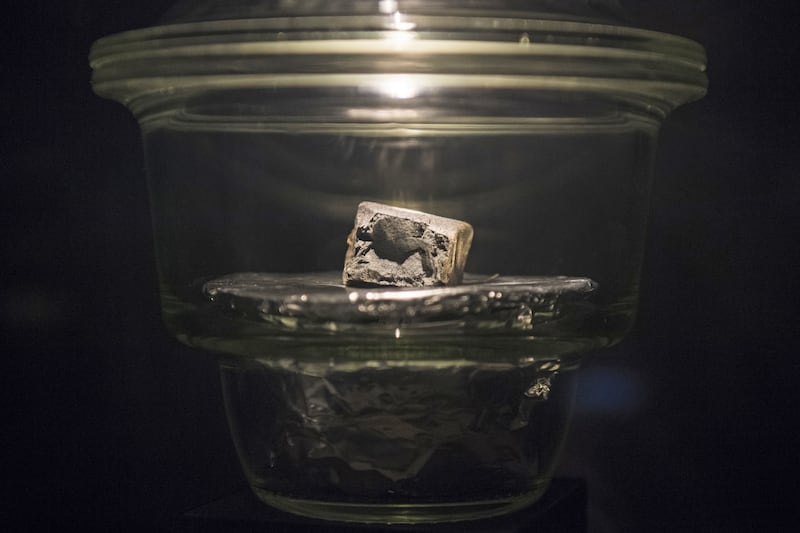A meteorite that landed in a sheep field in Gloucestershire three years ago was smashed apart and rebuilt over and over again as it endured a brutal journey through space, scientists have said.
Latest analysis of the space rock named after Winchcombe – the town where it was found – also suggests water may have played a role in its violent odyssey that lasted millions of years.
Researchers said that in its early days the meteorite was an ice-bearing dry rock but over millions of years ice melted into a ball of mud which was repeatedly broken apart and reassembled.
Findings suggest it formed from chunks of other rocks cemented together – like broken pieces from multiple jigsaws mashed together – in what is known as breccia.
Dr Luke Daly, of the University of Glasgow, who led the research, said: “We were fascinated to uncover just how fragmented the breccia was within the Winchcombe sample we analysed.
“If you imagine the Winchcombe meteorite as a jigsaw, what we saw in the analysis was as if each of the jigsaw pieces themselves had also been cut into smaller pieces, and then jumbled in a bag filled with fragments of seven other jigsaws.
“However, what we’ve uncovered in trying to unjumble the jigsaws through our analyses is new insight into the very fine detail of how the rock was altered by water in space.
“It also gives us a clearer idea of how it must have been battered by impacts and reformed again and again over the course of its lifetime since it swirled together out of the solar nebula (a giant interstellar cloud that gave birth to the Solar System), billions of years ago.”
The Winchcombe meteorite is the first to be found on UK soil for 30 years.
The first rock was discovered on a driveway in February 2021 after it was spotted as a fireball streaking across the skies.
This specimen was recovered just hours after it entered the Earth’s atmosphere.

More fragments were found in a sheep field a few days later.
The Winchcombe meteorite belongs to a rare class of rocks known as carbonaceous chondrites.
They comprise about 3% of all meteorites collected on Earth and are thought to contain unaltered chemicals from the formation of the Solar System more than four billion years ago.
Analysis of those minerals could help scientists find the answers to questions such as how did the Solar System evolve and how did Earth get its water?
A team of international researchers collaborated on the study, which is published in the journal Meteoritics And Planetary Science.
They analysed mineral grains in the fragments of the Winchcombe meteorite using cutting-edge technology.
Dr Martin Suttle, from the Open University, said: “Each grain is a tiny time capsule that, taken together, helps us build a remarkably clear view into the formation, reformation, and alteration that occurred over the course of millions of years.”
The team said they found each type of rock in the sample was altered to different degrees by the presence of water.

This was not just between the types of rocks but also within them, the scientists added.
The researchers said their analysis also indicated that the meteorite “was more carbon-rich than previously thought” due to an “unexpectedly high” proportion of carbonate minerals.
Dr Diane Johnson, from Cranfield University, a co-author of the paper, added: “Research like this helps us understand the earliest part of the formation of our Solar System in a way that just isn’t possible without detailed analysis of materials that were right there in space as it happened.
“The Winchcombe meteorite is a remarkable piece of space history and I’m pleased to have been part of the team that has helped tell this new story.”








